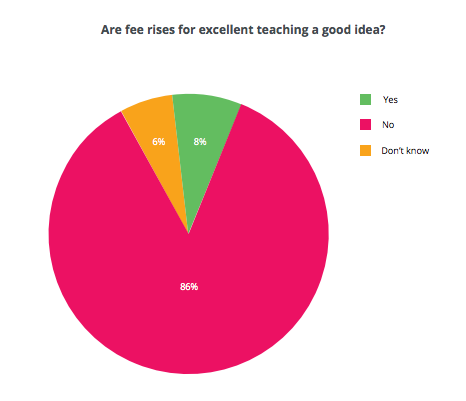 Yesterday the Higher Education Policy Institute (HEPI) released the 2016 Student Academic Experience Survey, which has received plenty of news coverage due to one of its conclusions that only 37% of full-time undergraduates feel they get good value for money from their courses. However the report discusses many other extremely important issues, such as student wellbeing, and their views on policy.
Yesterday the Higher Education Policy Institute (HEPI) released the 2016 Student Academic Experience Survey, which has received plenty of news coverage due to one of its conclusions that only 37% of full-time undergraduates feel they get good value for money from their courses. However the report discusses many other extremely important issues, such as student wellbeing, and their views on policy.
The survey, conducted yearly by HEPI and the HEA, analyses the responses from over 15,000 full-time undergraduate students, and as such provides an important insight for policies shaping HE, particularly when current rhetoric aims to place students at the heart of UK HE policy and practice. In the foreword, Nick Hillman [HEPI’s director] notes that new areas of interest have been introduced in the survey questions, demonstrating that while the survey allows for comparative analysis over long periods of time, it also modifies questions and keeps the information relevant to today’s environment.
“This year, the new areas include:
- The gap between what students expect from their lecturers and their lectures’ perceived characteristics;
- Knowledge of access to counselling services;
- Expectations of the time it takes academics to return assignments”
As mentioned above, value for money featured quite strongly in the report, and is illustrated in different questions, one being whether students felt they were given enough information on how their fees are used in HEIs. Clearly, as the Figure below indicates, students would like more transparency in this regard.

Source: 2016 Student Academic Experience Survey
Transparency is a key area in the recently published HE White Paper, and is promoted ‘by opening up data held by the sector, informing choice and promoting social mobility, by putting a duty on institutions to publish application, offer, acceptance and progression…’ (White Paper, p 19). However the transparency proposed is not focused at HEIs revealing where tuition fees are spent. Rather, it focuses on transparency for Students’ unions and how their use of taxpayers’ money should withstand ‘robust scrutiny and transparency’, and UCAS in relation to sharing relevant data to increase social mobility.
Of course, rising tuition fees are a great concern for all students, and their views on how they feel universities should save money are also presented in the report. For example, just under 50% feel that universities could save money by spending less on buildings and sport/social facilities. They also feel that the link between fees and teaching excellence is not a good idea.
The survey’s conclusions indicate a lot more has to be done by both government and universities to ensure they become ‘much more responsive to their students’ (Hillman, 2016).